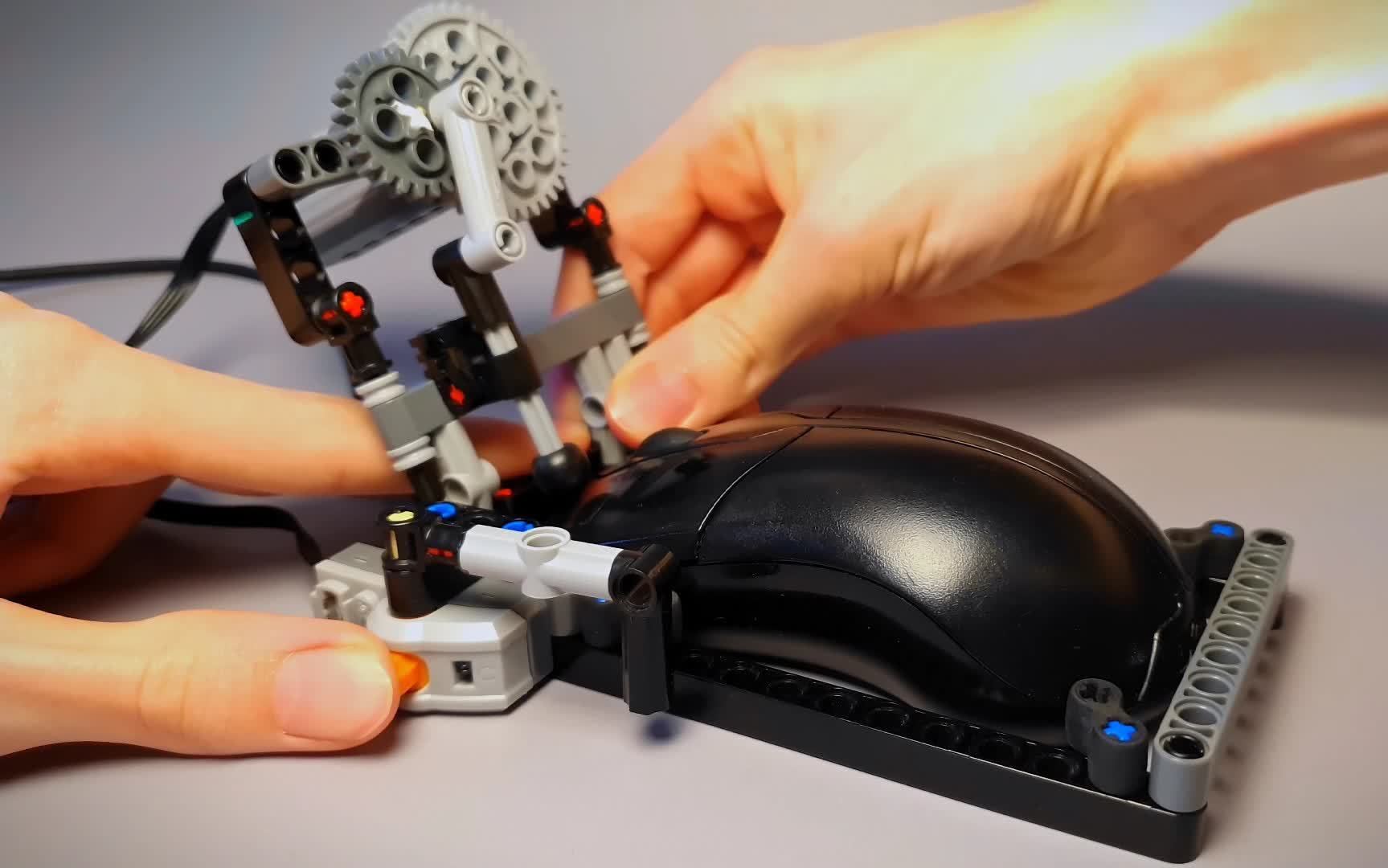WTF?! You don't often see Lego being used to build parts that you can use with your PC, but Lucas, the man behind YouTube channel Lucas-Dynamics, took on that challenge by building what he calls the world's fastest autoclicker using nothing but toy bricks.
Lucas put his contraption to the test on CPStest.org, a nifty website that clocks your clicking speed by having you rapidly tap inside a box. I gave it a whirl myself and managed 8.2 clicks per second on my laptop touchpad – far better than I expected. I guess the score's not too shabby for a human, but it was still utterly demolished by the record that Lucas set out to beat – a blistering 37 CPS.
Of course, building the ultimate autoclicker wasn't as simple as snapping a few Lego bricks together. The first prototype was somewhat underwhelming. But some clever gear ratio adjustments and a new angled presser quickly turned things around, with the CPStest counter zooming past 30 CPS.
Like any good maker project though, optimizations and upgrades were inevitable. Lucas replaced the original components with better-suited parts, including ditching the on/off switch design for a toggle button rigged up with a rubber band. The final result was a spin wheel to hammer the mouse button, attached to a lightning-fast 1,780 RPM motor.
The testing process was so intense, Lucas had to tape up his mouse to prevent damage from the onslaught of clicks. Throughout the process, he also streamlined the design, reducing moving pieces that looked poised to shatter under the extreme speeds and pressure.
After all the tinkering, the final contraption hit an eye-watering 70+ CPS – doubling the initial result and quite likely snatching the "world's fastest autoclicker" crown (though the record is unofficial). The CPStest website itself looked like it was glitching, blinking rapidly trying to keep up with the blistering click rate.
Watching the thing in action, you can see why Lucas had to rig up that protective mouse tape. The spin wheel component visibly chipped and degraded from the speeds, as shown towards the video's end. Not that longevity was really the goal here.
What real-world use could such a device possibly have? Well, maybe it could blast through thousands of runaway browser tabs before your boss walks in. Or act as a cheeky advantage in click-heavy games. Useful or not, it's an entertaining example of taking a silly concept to its audacious extreme, just for the heck of it.
